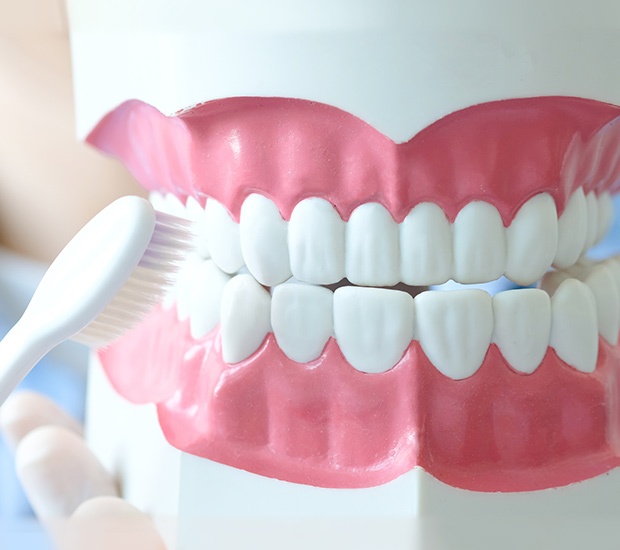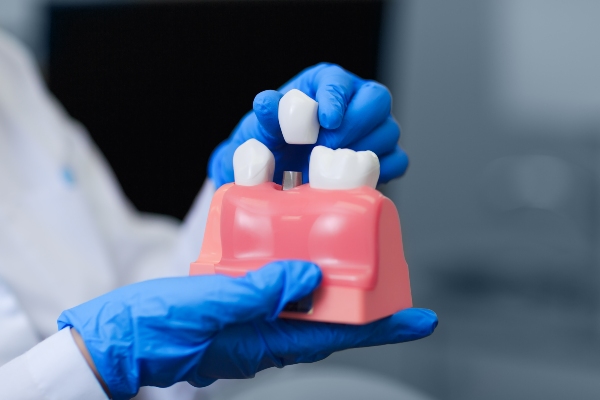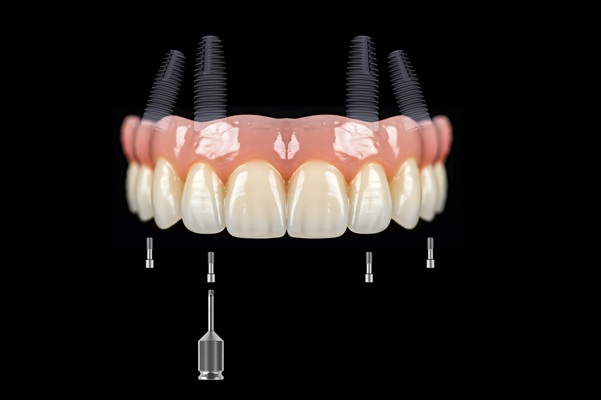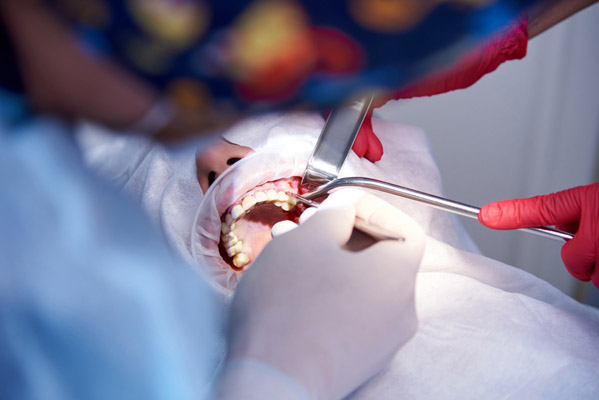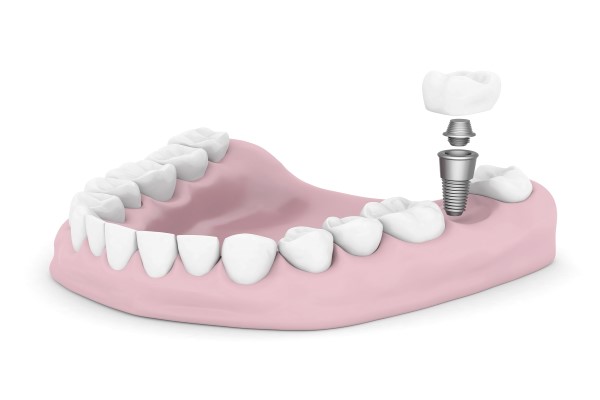PeriodontistSan Diego, CA
While everyone should visit a dentist at least once a year, some oral health procedures call for a periodontist. Periodontists are dentists who specialize in preventing, diagnosing, and treating periodontal disease. Periodontists specialize in dealing with dental implants and oral inflammation.
Periodontal care is available at Torrey Hills Periodontal Group in San Diego and the surrounding area. We can help you with your general dentistry needs and more. Call us today at 858-925-1188 to schedule an appointment or to learn more about our services.
Who Periodontists Are
To best understand who periodontists are and what they do, one must first have a basic understanding of the field of periodontics. Periodontics is a specialty branch of dentistry that focuses exclusively on the inflammatory disease (such as gingivitis and periodontitis) that destroys the gums and other supporting structures of the teeth (such as the alveolar bone, cementum, and periodontal ligament).
According to the American Academy of Periodontology, periodontists undergo an additional three years of education after dental school. This allows them to specialize in the area of periodontics, dental implants, and oral inflammation. They are well-versed in the latest trends and best practices in diagnosing and treating periodontal disease, so they can also perform any cosmetic and restorative periodontal procedures.
The Difference Between Periodontists and Dentists
All periodontists are dentists, but not all dentists are periodontists. In other words, periodontists are specialists who can perform general dental services in addition to periodontal work. Patients may want to see a periodontist when dealing with signs of gum disease, such as bleeding, swelling, and tenderness. While a general dentist may be able to treat less progressed forms of periodontal disease, only a periodontist has specialized training to better understand the condition.
This is especially true when patients have periodontitis so advanced that it requires surgery. In such cases, a general dentist will usually refer out to a periodontist who can best treat the condition. It is vitally important to address any periodontal conditions as soon as possible, as evidence suggests that oral health (especially periodontal health) is linked to systemic health. While both dentists and periodontists can help patients establish good oral hygiene habits, a periodontist is often necessary for patients looking to optimize their overall health — particularly if they have any preexisting conditions that may aggravate or be aggravated by periodontitis.
Check out what others are saying about our Periodontist services on Yelp: Periodontist San Diego
What Periodontists Do
As mentioned above, periodontists can perform general dentistry in addition to offering periodontal procedures. Such procedures include scaling and root planing, root surface debridement, and various regenerative procedures. They can also perform surgical treatments, such as flap surgery (also known as pocket reduction surgery), soft tissue grafts, bone grafting, guided tissue regeneration, and applying tissue-stimulating proteins. Periodontists can also offer preventive care to stop the disease before it has the chance to progress.
Additionally, since dental implants must be connected to the gum tissues and underlying bones in the mouth, periodontists are imperative in their placement, maintenance, and repair. A dental implant procedure will typically be a collaborative effort between the patient, their dentist, and their periodontist. After taking the patient’s condition and desired implant into consideration, the periodontist will ultimately create a treatment plan customized to their specific needs.
When to See a Periodontist
Periodontal disease can lead to severe problems if left untreated — from sore, bleeding gums to even tooth loss. Unfortunately, it is often hard for patients to notice gum disease right away, as symptoms do not typically manifest until the condition has already started to progress. Regular visits with a periodontist can help prevent this from happening. In any case, patients should contact a periodontist if they notice signs of gum disease, such as:
- Bleeding, receding, red, swollen, or tender gums
- Loose teeth
- Painful chewing
- Persistent bad breath
- Sensitive teeth
Periodontal help may be especially beneficial to patients with systemic conditions, particularly heart disease and diabetes. >According to the American Dental Association (ADA), studies have shown that there is a correlative relationship between heart disease and chronic oral inflammation. Furthermore, diabetes has a bidirectional relationship with periodontal disease — meaning that treating one can treat the other. Additionally, certain conditions may require adjustments to your dental plan.
Frequently Asked Questions
What does it mean when a periodontist is “board-certified”?
In addition to completing the additional years of education after graduating from dental school, some periodontists take board-certification exams to extend their training even further. Dr. Hunt has been board-certified by the American Board of Periodontology for over 20 years.
What are the risk factors for periodontal disease?
Various systemic conditions can put patients more at risk for periodontal disease. Some lifestyle choices, such as smoking and excessive alcohol use, can also contribute. Genetic history, certain medications, and stress may be able to be controlled with the help of a doctor. We can help determine your unique risk profile and formulate the right treatment plan for you.
Do I need a dental implant?
A dental implant is one of the more attractive tooth replacement options because it looks and functions exactly like the natural teeth. Replacing a tooth is more than a matter of aesthetics. Even one missing tooth can put undue stress on the surrounding teeth, leading to the eventual deterioration of the teeth and jaw bone.
How should I care for my dental implant?
Treat it just as you do your natural teeth. Bacteria can still build upon it, to its detriment. Brush at least twice daily, flossing nightly. Use a fluoridated toothpaste and rinse with an ADA-approved mouthwash.
What is plaque?
Plaque refers to the transparent, sticky film that forms on teeth every day. It is a naturally occurring substance that comes from food debris and bacteria. If not removed, however, it can cause gum disease and cavities. Proper oral hygiene, along with regular dental checkups, can help keep plaque under control.
Call Us Today
Taking care of your general, cosmetic, and periodontal dental health needs all in one practice can help save you from any unnecessary stress. We at Torrey Hills Periodontal Group can help. Call us today at 858-925-1188 to schedule an appointment or to learn more about our services.
Torrey Hills Periodontal Group is located at 4765 Carmel Mountain Road Ste 204 San Diego, CA 92130.
